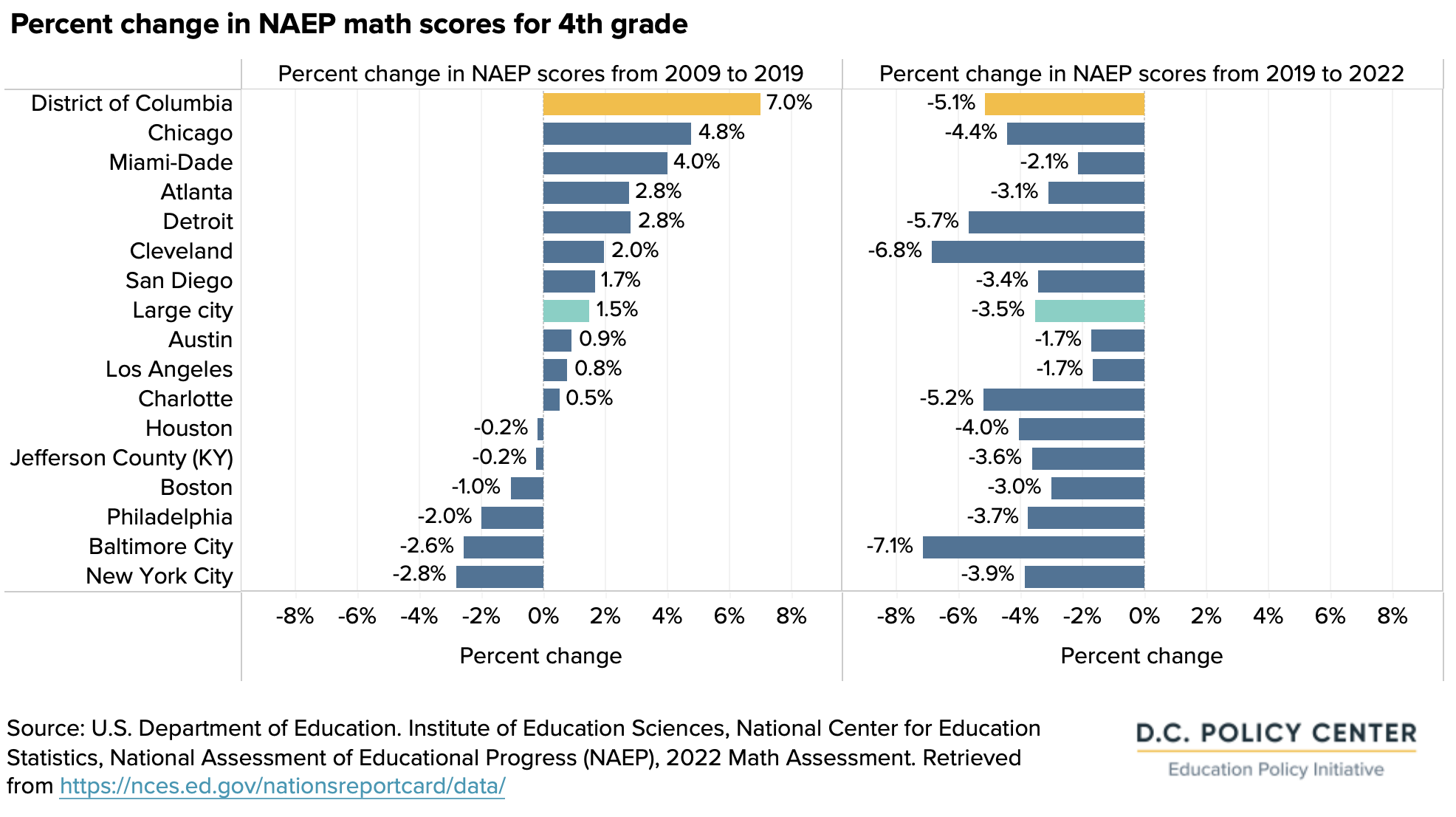The COVID-19 pandemic and subsequent shift to virtual learning caused disruptions to students’ learning and general wellbeing. While school leaders, educators, and students have all identified challenges with virtual learning, standardized testing was paused during the pandemic and so it was difficult to quantitatively measure the impact on students’ learning. The 2022 National Assessment of Educational Progress (NAEP) is the first national standardized test release to capture some of the impacts of COVID-19.
After years of improvement in D.C., NAEP scores released in October 2022 show that students’ performance declined across math and English for school year 2022 when compared to 2019. We focus on math in this chart because nationwide and in D.C. the pandemic had a greater negative impact on math than reading. From 2009 to 2019, D.C.’s 4th grade math scores increased by 7 percent, larger than the large city average of 1.5 percent. From 2019 to 2022, math scores for 4th grade students in D.C.’s public schools decreased by 5.1 percent, larger than the 3.5 percent average for large cities.
Among large cities, D.C. experienced one of the largest gains in math performance from 2009 to 2019 in both percent change and the absolute score change. From 2019 to 2022, D.C.’s performance decline for 4th grade math lands roughly in the middle of the range for other large cities indicating that D.C. held on to some performance gains relative to others. While all of these large cities also saw a decrease in math performance, there is not a clear pattern between growth prior to COVID-19 and the degree of score decline from 2019 to 2022.
Scores for reading in 4th grade generally declined in D.C. and across other large cities but to a lesser degree. Scores for 8th graders in math and reading follow these same trends.
